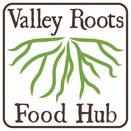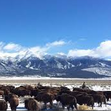 “We still (sometimes) remember that we cannot be free if our minds and voices are controlled by someone else. But we have neglected to understand that we cannot be free if our food and its sources are controlled by someone else. The condition of the passive consumer of food is not a democratic condition. One reason to eat responsibly is to live free. (pg. 323, The Pleasures of Eating)” ― Wendell Berry, The Art of the Commonplace: The Agrarian Essays Thanks to everyone who participated in Valley Roots' inaugural Winter CSA. What a year 2015 has been and I reckon 2016 is going have its share of fullness too! Many Blessings and Happy Holidays to all. Here's the box:
Arkansas Valley Organic Growers (our partner Food Hub to the East) 4 lbs ORG Butternut squash 2 lbs ORG Acorn squash Arkansas Valley Organic Growers is a group of farmers dedicated to Farm-Fresh local food for homes, restaurants, and groceries. They are based out of Avondale, CO (near Pueblo) and whose member farms are all along the Arkansas River all the way up to Buena Vista with Weathervane Farm (who has supplied Valley Roots with an awesome broccoli and excellent soil grown tomatoes). The very excellent farmer of Dan Hobbs is a large part of this food hub, and who has also been instrumental in launching the Valley Roots Food Hub. The organic roasted green chiles we carry are from Dan's farm and as he says, "this year was a special crop that lead to a real deep flavor." Green Earth Farm, Saguache 1 ea ORG red onion 1 ea ORG yellow onion Green Earth Farm is a Colorado Certified Organic Farm that produces a wide variety of medicinal and culinary herbs and is co-managed by founders Thomas and Lillian McCracken, who both have extensive backgrounds in sustainable agriculture and a long term commitment to environmental preservation. The Farm is located at 7900 feet in Saguache and is surrounded by wilderness, between an ancient seabed and one of the world’s oldest and largest caulderas. The rich soils, pure water and air, and pristine high altitude climate produces potent herbs, sweet tender vegetables and nutritious grains. Absmeier High Altitude Garlic, Alamosa 1 lb CNG garlic The idea to grow and sell garlic had been a thought in the back of the owner, Adrian's mind for quite awhile, but he hadn't mentioned it to many people. Once he checked into it and got the answers he needed, he talked to his close friends and family, told them to set aside a couple of days, and be prepared to get to work! Well, work is what we all did. Adrian has a multi-disciplined background including farming and ranching. As a result, he has produced excellent crops of quality garlic! We have grown a variety of garlic as proof that Colorado LOVES garlic and wants to share it with you. We offer 7 varieties of hardneck garlic, both as seed and food, which include Krasnodar White, Georgian Fire, Armenian, Leah, Chesnock Red, German Extra Hardy and Purple Glazer. The hardneck variety of garlic produces scapes (the "flower stalks" of hardneck garlic plants, although they do not actually produce flowers). Once the scape begins to curl, making a full circle, they are snapped off. This allows the garlic to continue growing to its full potential. The scapes, when cooked, are similar to scallions. Check our "Extras" link for some great tasting recipes. We are a Certified Naturally Grown (CNG) farm which is based on the premise that we practice natural farming methods. In other words, we do not use any synthetic fertilizers, pesticides, herbicides, fungicides or GMO seeds, just like organic farms. Our garlic is grown naturally in the "Land of Cool Sunshine". Southern Colorado Farms, Center 5 lbs ORG carrots Southern Colorado Farms was founded in 1977 to focus on key specialty crops for regional eastern markets. Major crops grown are lettuce, romaine, spinach and organic carrots. The organic carrots, interestingly enough, are grown for Gerber Baby Foods. Southern Colorado Farms works with all the major national processors for their regional plants. Long time SLV resident and farmer Amy Kunugi provides Valley Roots with the exceptional Organic Bangor carrots which are winter stored all the way into May. White Mountain Farm, Mosca (Valley Roots home base) 3 lbs ORG potatoes, mixed fingerlings 5 lbs ORG red potatoes White Mountain Farm is located in an ancient lake bed called the San Luis Valley. It lies between the San Juan and Sangre de Cristo Mountains of the Southern Colorado Rocky Mountains, at an elevation of about 7600 feet. The farm has been in the family since the 1930's. In the late 1970's and early 1980's, the main crops were organically grown wheat, alfalfa, and sheep. In 1984 we started experimenting with Quinoa and in 1987, White Mountain Farm was incorporated, named after Mount Blanca, and started growing certified organically grown Quinoa and potatoes. Since then we have added rye and a variety of vegetables to our rotation. In 1987, White Mountain Farm was the first large-scale Quinoa operation in North America. Over the past years we have been selecting the best tasting Quinoa and potatoes to offer our customers. Our goal is to offer good tasting, high quality Quinoa and potatoes at reasonable prices. Brightwater Farms, Monte Vista 3 lettuce heads (red leaf, butterhead, and/or green leaf) 1/2 plant kale 0.04 lb Genovese basil Mennonite Towes brothers have entered the floating-raft, hydroponic, year-round, intensive, greenhouse production sphere with passion and dedication. The new start up near Monte Vista is an in an interesting and efficient way to produce quality head lettuce, basil, and kale year round in high alpine Colorado. It's like a new-age chinampa system, similar to what the Aztecs practiced. Hydroponics boasts less water consumption per unit of food produced, faster growth, and the indoor greenhouse provides climate control for optimal conditions. These greens are unwashed and come with the ROOTS still attached. They are alive! For Solstice 2015, here's yer fresh greens! Colorado Mushroom Farm, Alamosa 12 oz crimini mushrooms Long time valley employer and quality commercial producer of Rahka Mushrooms now is Colorado Mushroom Farm. They produce consistent and quality mushrooms with sterilized biomass media inoculated with specific mycelial fungi in indoor controlled temperature and humidity environments. J-Cabz Farms, Jaroso 3 lbs pinto beans Carlos and Annette Benavidez purchased J-Cabz Farm in 2008, which encompasses approximately 760 acres in Jaroso CO. The Benavidezs were originally from Bosque N.M. which is about 35 miles south of Albuquerque. Carlos was Born and raised on a farm and have done this for basically all his life although mostly as a tenant farmer. After 27 years I was able to gather enough money for a down payment on a piece of ground. Fortunately I couldn't afford any property down there so we settled on a beautiful place in the S.E corner of the Valley called Jaroso. Annette and I just celebrated our 35th wedding anniversary last week . We have three girls, Melissa Marks with husband Nathan and daughter Maddi who live in Rio Rancho N.M. Celeste Grabowski, husband Andrew son Tyler who live in Annapolis Md. and Tawnya Archuletta, husband Joshua, son and daughter Austin and Caylee, who live in Big Spring Tx. There are about 520 acres of tillable land on J-Cabz Farm. Alfalfa is the primary crop grown on the property. Carlos has grown canola and other small grains but at this point, Carlos is still searching for a crop that can help make the payments on this place. Simply Honey, Alamosa 1 pint honey Simply Honey is progressive natural honey company. We pride our self on managing our bees in a sustainable bee friendly manner. We pack all of our own honey and do not buy honey from other producers. We offer raw unheated honey, from the San Luis Valley, Northern and Southern New Mexico. We produce 4 different floral source honey's and beautiful white comb honey. Every crop is packed separate and never blended. You will notice the year of the honey on every jar. Like a fine wine honey should be celebrated for its character. Jackson's Honest Chips, Crested Butte Made in Denver with San Luis Valley potatoes from White Mountain Farm! We started Jackson's Honest Chips based on our passion for providing healthy, great tasting potato chips for our four children. For years we were alternately flabbergasted and bemused by the breadth of snack foods that were fried in some combination of highly processed and denatured polyunsaturated vegetable oils. So we started making potato chips in our own kitchen using the healthiest frying oil we could find: coconut oil. Lo and behold, they tasted great, our kids loved them, and my husband and I knew that coconut oil was a far healthier fat to fry in than vegetable oils. As concerned parents who follow a combination of Paleo, Weston Price, organic, local, and seasonal diets, we focus on the types of fats our children consume. Our visits to various health food stores and natural grocers across the country always ended in the frustration that we couldn’t find a potato chip fried in a healthy oil like coconut oil. Sure there were organic varieties; there were rippled, kettle, and root vegetable derivatives; there were dozens of different flavors too. And while the last decade or so has brought tremendous changes in potato chip flavors, brands, and varieties, the reality is that nearly every single manufacturer uses the same highly processed vegetable oils or vegetable oil blends to fry their potato chips: canola oil, sunflower oil, safflower oil, corn oil, soy oil, or cottonseed oil. ‘Eating is an agricultural act’; these are the words of Wendell Berry. The tag line on our bag reads: ‘From the field, the farmer, and the fryer…to you.’ And when we decided to see if we could sell coconut oil potato chips, we wanted to make sure that – at every step of the production process – we were doing what was right for the consumer, for the farmers, for the environment, for our suppliers, and our employees. So we source potatoes from small-scale family farmers that we know and trust who use organic or biodynamic methods on their farms and never use GMO varieties. We purchase the highest grade organic coconut oil from companies that treat the soil and their workers fairly and use traditional coconut oil extraction techniques. We use sea salt so consumers can benefit from its many trace minerals. Finally, we had our bags designed and produced right here in the U.S. Chavez Family, San Juan Mountains 0.3 lb Wildcrafted & Salted Pinon Nuts Truth is......I was envisioning something special to put in the 1st Winter CSA box. Something that captured the spirit of the season, and the essence of what local foods mean. Don't worry, I resisted the temptation to wrap the CSA box with candy cane red ribbon! Then, there was the Chavez's wildcrafted salted Pinon Nuts. This item is one of the most indigenous in the box, and perhaps a rare delicacy. The forest provides. Next to the mushrooms, squash, and beans, these Pinon Nuts represent our bioregion before humans. And then a staple of humans after that for generations, perhaps 12,000 years plus. These are our historical foods here. Indeed, what has been eaten, and what we would be eating more of without fossil fuels. Get yer recipes going. Today in the year 2015, during the depths of winter, below zero to single digits at night and sunny but never coming above freezing in the day, I think about all those years of people eating dried mushrooms, pinon nuts, beans, and squash around Solstice Fires. Add in Valley Root's bison (grown by my buddy Kevin Off on the alluvials of the Rio Grande River) and the trout (grown by mastermind and Saguache County water wizard Kermit Krantz), we're doing pretty good. Local foods are still alive and thriving here in one of Colorado's cornucopias.
1 Comment
“Living without expectations is hard but, when you can do it, good. Living without hope is harder, and that is bad. You have got to have hope, and you must'nt shirk it. Love, after all, hopeth all things. But maybe you must learn, and it is hard learning, not to hope out loud, especially for other people. You must not let your hope turn into expectation.” ― Wendell Berry This week of launching Valley Roots first Winter CSA mostly by the wiz-banger of the world wide web brings up an array of feelings. A big THANK YOU goes out to all of the CSA shareholders for making this precedence-setting program a viable way to eat. And for those that had a blip or two, thank you for your perseverance and tolerance of being "denied access" to where only a moment before you were a welcomed guest. "The page you are looking for no longer exists." Excuse me? "I'm sorry but you are not authorized to access these pages!" What?! Who is it that is taking and why do I feel as if "they" are in control? All I want is food that comes from within 50 miles of where I live and yet I have to go global before this can happen? Where's the humanity in all of this? Where's the food, the soil, and the micro-biology? These are all viable questions and while the answer is complicated I assure you that at the end of the day Local Food does win.
Now, it may come as a surprise that I have been known, and would even call myself, something of a modern day Ludditte. That is, I loathe the loss of the subtle graces of life that give way to technological prowess. I mourn the loss of the written letter that has given way to the over-whelming hurricane of internet and wireless communication. And I emphasize with digital natives (millenials) who all they have ever known is the internet way of life. Remember the patience and rewards we once used to experience in waiting for a favorite TV show to come on again NEXT WEEK. Or may favorite, listening to a record, tape, or CD song by song while thumbing through the liner notes and pictures-reading and digesting all the lyrics, the places it was recorded, who mixed and mastered it, and more. I can still smell the smell of a freshly opened CD or tape cassette and hear the crinkle of the cellophane. Those were magical moments. Yet, more and more I am lead to believe my experience of music or of popular culture in 80s and 90s was not "better" than what kids of today experience. Just different. Just like working ridiculously hard at something with hand tools only is not necessarily "better" than an approach of all power tools and the proper training to do something efficiently and effective. Or is it? And how do we quantify what makes it better. A hand built table is just that, whether its manufacture took sweat and time, or electricity and less time. Is there an inherent quality and how do we preserve it? How do we represent it? Now the story of local food is this: that's all it used to be for everyone. Imports were a unanimous delicacy. Whether that was tea from the Orient, coffee from Latin America, or sugar from SE America. These commodities probably joyously spiced up the cupboard of saurkraut, pickled beans, and hard tack. Then, as fossil fuels enabled civilization to farm, transport, and refrigerate huge quantities of food, local became not such a confining issue. Then the populace became more and more distant from their food and the producers became more and more bio-mehcanical-chemical engineers not concerned with families who were eating their products, but more than likely the conglomerate corporation who was to by their crop. Or perhaps it was just a government subsidy that didn't care what the heck went on in the field, if anything at all. And pretty soon we are at the end of the 20th Century and health and environmental conscious people/initiatives were finding an incongruency in the way the system has left us to eat. Yes, we can grow gardens and should. But what about when we go out to eat at a restaurant, or need to buy something to complete the home meal? Should we always have to succumb with nameless, factory food? The people have made it clear that Local Food is what we want. It starts with better health, environmental sensitivity, flat out sustainability/security, and and the hunger for the story (like the CD liner notes). Then you add in economic sensitivity, that of the $115 million dollars the people of the San Luis Valley spend on food produced somewhere else every year, all of that money has a one way ticket out of the community never to be seen or felt again. Change that scenario and put that money into local farmers and their employees, restaurants and their employees, retailers and their employees, and food hubs and their employees. Then we have a circular economy where that money actually aggregates and grows to the tune of 2.6 to as high as 7 times the amount of the original dollar. That is growing wealth for communities....look at Cuba for what happens when people grow and eat local, farmers and educators get some of the highest wages in society. Something about that whifts of intelligence. I remember the early days of my tenacity with the internet when a friend questioned me about my stance. "Its the tool of the adversary," I said. "Well, the revolution's going to need it then," he replied. Ever since that day, I understood this game-changing tool to be something that the revolution better keep up with, in fact the revolution better get as good or better than the "adversary," whatever that means. Where Local Food meets the global commons of the Internet is cross-section of logistics, economy, efficiency, and community self-determination. Let's face it, the Economy of Scale is a real thing and its laws are hard to deceive. Wal-Mart has built an empire on this law. The smaller something is, the more costly it will be. The less units an entity produces, the more expensive they will be. And for a counter-intuitive one, the Organically produced crop will be more expensive. Its true there might be more labor (weeding), certainly more paperwork, but I think we should uphold organics as flat out having a HIGHER VALUE on a pound for pound basis. Likewise, LOCAL FOOD has a higher value than the nameless tomato with salmon genes in it. So, great we have super high value foods that are indeed produced locally. Now is the task of actually building a LOCAL FOOD SYSTEM that gets these super high value foods into the retailers, restaurants, institutions, and households of the the bioregion on a day by day basis. Now, we are competing against some of the biggest companies in the nation who will always be better equipped, better established, have more trucks, offer better discounts/promotions, have more offerings, and have cheaper prices. Its a tough playing field and its not level. Enter the era amazing tools that operate at light speed that perform several functions: communication, education, interaction, and commerce. Yes, while not the smoking gun on their own these tools do contribute to more of a level playing field. Valley Root's aptly named software provider, Local Orbit, comes out of the belief that we can build thousands of local food systems out of the nation's many, many bioregions. And we can do it in a way that will stick for generations to come, rather than witness the ephemeral flames of countless start ups that just can't compete with the resources of larger companies. Local Food is about a lot of perishable details every week, and the demand for food is self-renewing, which theoretically makes Food Hubs like surgeon-farmers of commerce. As a good buddy of mine and an experienced businessman in local foods start ups has said, "Local Food Systems are a Commons, people have to use them and take care of them for them to have any future of productivity." So, folks thank you for using the Valley Roots Food Hub, thank you for acquiring yet another password for the vast internet, and thank you for valuing the true value of local foods! Remember, we may be using some of the latest high tech tools in cyberspace, but we are always still firmly rooted in the web of life that exists beneath our feet. The bacteria, fungi, actinomycetes, algae, protozoa, and mircro-arthropods always have a seat at our table. May you and your family and friends have a great holiday season! The first of TWO boxes for the Winter CSA are as follows (weight are approximate):
CSA Online Market Registration: https://valleyrootsfoodhubcsa.localorbit.com/users/sign_in Building the Local Food Economy is here and now. The CSA Online Market is NOW OPEN! Greetings Fellow Eaters of South Central Colorado,The Valley Roots Food Hub is a regional aggregator and distributor of local foods. We build relationships in our communities by serving producers, grocers, restaurants, and institutions with the most fresh, and highest quality local foods from your friends and neighbors. Now we are excited to be offering our 1st Winter Community Supported Agriculture (CSA) Fresh Box and CSA Online Market to you!
The Winter CSA Fresh Box is both a membership into the CSA Program, and TWO winter distributions of Colorado storage crops and greenhouse production. The online CSA Market is a cutting-edge, informative, and effective way to shop for the freshest and best local foods right from the source. Here's how it works:
In blue skies, cold temps, and local food! Nick and the Valley Roots Food Hub Crew CSA Harvest Blog: http://www.valleyrootsfoodhub.com/blog CSA Online Market Registration: https://valleyrootsfoodhubcsa.localorbit.com/users/sign_in |
Archives
June 2024
Categories |
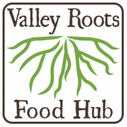
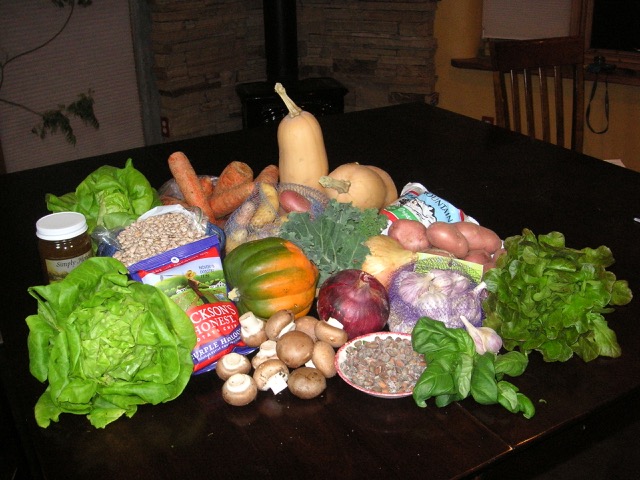
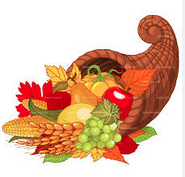
 RSS Feed
RSS Feed

